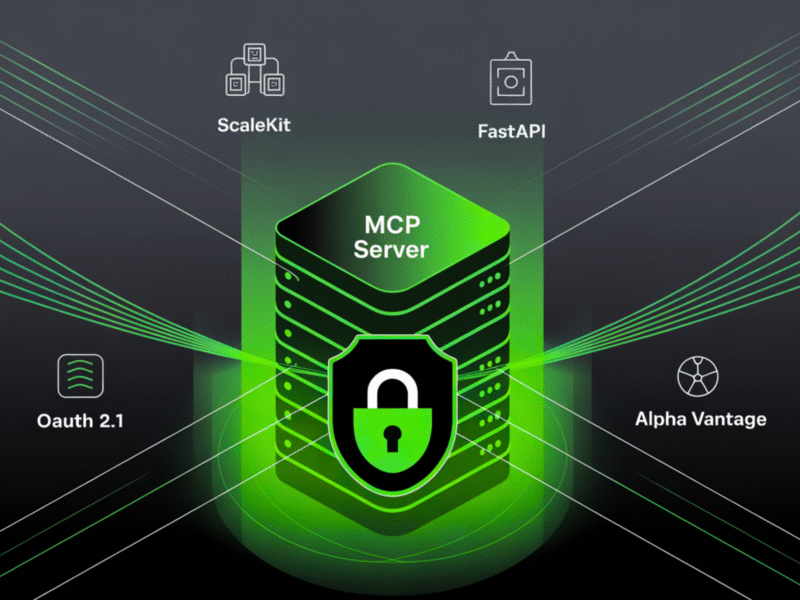Enterprise AI is moving from isolated pilots to production-grade, agent-centric systems. The principles below distill the most widely posted requirements and trends in large-scale deployments, based solely on documented industry sources.
1) Distributed agentic architectures
Modern deployments increasingly rely on cooperating AI agents that share tasks instead of a single monolithic model.
2) Open interoperability protocols are indispensable
Standards such as the Model Context Protocol (MCP) allow heterogeneous models and tools to exchange context securely, much like TCP/IP did for networks.
3) Composable building blocks accelerate delivery
Vendors and in-house teams now ship reusable “lego-style” agents and micro-services that snap into existing stacks, helping enterprises avoid one-off solutions.
4) Context-aware orchestration replaces hard-coded workflows
Agent frameworks route work dynamically based on real-time signals rather than fixed rules, enabling processes to adapt to changing business conditions.
5) Agent networks outperform rigid hierarchies
Industry reports describe mesh-like topologies where peer agents negotiate next steps, which improves resilience when any single service fails.
6) AgentOps emerges as the new operational discipline
Teams monitor, version and troubleshoot agent interactions the way DevOps teams manage code and services today.
7) Data accessibility and quality remain the primary scaling bottlenecks
Surveys show that poor, siloed data is responsible for a large share of enterprise AI project failures.
8) Traceability and audit logs are non-negotiable
Enterprise governance frameworks now insist on end-to-end logging of prompts, agent decisions and outputs to satisfy internal and external audits.
9) Compliance drives reasoning constraints
Regulated sectors (finance, healthcare, government) must demonstrate that agent outputs follow applicable laws and policy rules, not just accuracy metrics.
10) Reliable AI depends on trustworthy data pipelines
Bias mitigation, lineage tracking and validation checks on training and inference data are cited as prerequisites for dependable outcomes.
11) Horizontal orchestration delivers the greatest business value
Cross-department agent workflows (e.g., sales supply-chain finance) unlock compound efficiencies that siloed vertical agents cannot achieve.
12) Governance now extends beyond data to agent behaviour
Boards and risk officers increasingly oversee how autonomous agents reason, act and recover from errors, not just what data they consume.
13) Edge and hybrid deployments protect sovereignty and latency-sensitive workloads
Nearly half of large firms cite hybrid cloud–edge setups as critical to meet data-residency and real-time requirements.
14) Smaller, specialized models dominate production use-cases
Enterprises gravitate to domain-tuned or distilled models that are cheaper to run and easier to govern than frontier-scale LLMs.
15) The orchestration layer is the competitive battleground
Differentiation is shifting from raw model size to the reliability, security and adaptability of an enterprise’s agent-orchestration fabric.
By grounding architecture, operations and governance in these evidence-based principles, enterprises can scale AI systems that are resilient, compliant and aligned with real business objectives.
Sources:
- https://www.weforum.org/stories/2025/07/enterprise-ai-tipping-point-what-comes-next/
- https://www.deloitte.com/us/en/what-we-do/capabilities/applied-artificial-intelligence/content/state-of-generative-ai-in-enterprise.html
- https://www.linkedin.com/posts/armand-ruiz_the-operating-principles-of-enterprise-ai-activity-7368236477421375489-ug0R
- https://arya.ai/blog/principles-guiding-the-future-of-enterprise-ai
- https://appian.com/blog/2025/building-safe-effective-enterprise-ai-systems
- https://www.superannotate.com/blog/enterprise-ai-overview
- https://shellypalmer.com/2025/05/enterprise-ai-governance-manifesto-the-2025-strategic-framework-for-fortune-500-success/
- https://www.ai21.com/knowledge/ai-governance-frameworks/
- https://ashlarglobal.com/blog/building-scalable-ai-solutions-best-practices-for-enterprises-in-2025/
- https://intelisys.com/enterprise-ai-in-2025-a-guide-for-implementation/
- https://quiq.com/blog/agentic-ai-orchestration/
- https://www.anthropic.com/news/model-context-protocol
- https://www.tcs.com/insights/blogs/interoperable-collaborative-ai-ecosystems
- https://kore.ai/the-future-of-enterprise-ai-why-you-need-to-start-thinking-about-agent-networks-today/
- https://dysnix.com/blog/what-is-agentops
- https://www.lumenova.ai/blog/enterprise-ai-governance/
The post 15 Most Relevant Operating Principles for Enterprise AI (2025) appeared first on MarkTechPost.

